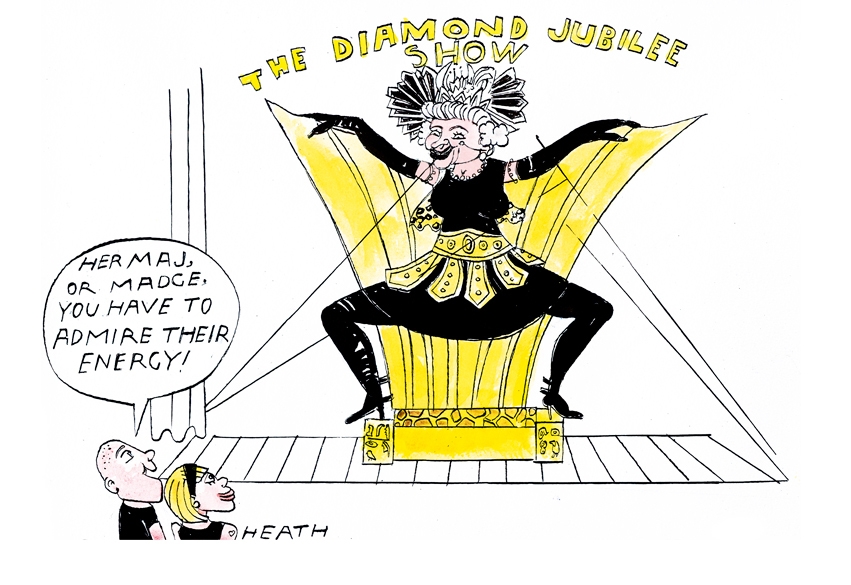Home
A judge granted bail to Abu Qatada, once described by a Spanish judge as ‘Osama bin Laden’s right-hand man in Europe’, who was to be freed from Long Lartin prison and allowed to leave a fixed address in London for two one-hour periods a day, in order to take his youngest child to school. Ed Davey replaced his fellow Liberal Democrat Chris Huhne as Energy Secretary after Mr Huhne’s resignation to concentrate on defending himself against charges that he persuaded his ex-wife to accept his speeding points in 2003 to avoid a driving ban. The Metropolitan Police unlawfully failed to warn people that their telephones had been hacked by the News of the World, a judicial review, sought by Lord Prescott, ruled. Fabio Capello, the England football manager, told the Italian press that he disagreed with the Football Association’s decision to remove John Terry from the England captaincy while he faces a charge of racially abusing the Queens Park Rangers defender Anton Ferdinand: ‘I still consider Terry as the England captain,’ he said. ‘I think we first should wait for the trial conclusion.’
•••
In a message for the Diamond Jubilee of her accession, the Queen said: ‘I dedicate myself anew to your service.’ Britain faces a threat from terrorists returning from fighting overseas in the next few years, such as the 50 Britons fighting with the Somali extremists al-Shabab, according to the Royal United Services Institute. Dr Rowan Williams, the Archbishop of Canterbury, made a speech in the General Synod of the Church of England opposing a change in the law on assisted suicide: ‘The default position on abortion has shifted quite clearly over the last 40 years and to seek a change in the default position on the sanctity of life would be a disaster.’ Wards closed in 23 hospitals affected by the winter vomiting virus. Half the flights at Heathrow were cancelled on the day that some snow fell.
•••
Xstrata, the Anglo-Swiss mining group, announced a £56 billion merger with Glencore, the world’s largest commodity trader, but some shareholders resisted the deal. Tesco Bank delayed the launch of its current account facility after computer troubles barred thousands of customers from their savings accounts. More than one shop in four was empty in the streets of Nottingham, Grimsby and Blackburn, compared with only one in five in Athens, according to a survey by the Local Data Company. A burglar walked out of an open prison after being repeatedly offered drugs.
Abroad
Syrian forces attacked Homs with shells and mortars, and dozens of civilians and opponents of the government were killed each day. A UN Security Council resolution on Syria, which backed a call from the Arab League for President Bashir al-Assad to stand down, was vetoed by China and Russia, Syria’s main ally. Sergei Lavrov, the Russian foreign minister, visited Syria for talks with its rulers. Mahmoud Abbas, the Palestinian President, said he would head a unity government of the Hamas and Fatah movements; Benjamin Netanyahu, the prime minister of Israel, said that this damaged prospects for peace.
•••
Neelie Kroes, the vice-president of the European Commission, said that the eurozone could survive the departure of Greece: ‘What is a man overboard?’ she said. The Greek government held endless talks about austerity cuts that could gain them help from the European Central Bank and International Monetary Fund. Greek workers went on strike. Italy experienced shortages of Russian gas as cold temperatures swept over Europe. Mitsubishi halted car production at its Dutch factory and offered to sell it for one euro. The Brazilian government went to law against Twitter, demanding that it should close accounts that warned people of police speed traps.
•••
President Cristina Fernández de Kirchner of Argentina said that Britain was ‘militarising the South Atlantic once again’, and a complaint would be made to the UN. President Mohamed Nasheed of the Maldives resigned after weeks of demonstrations. Finland elected a pro-European president. The Spanish Socialist Workers’ party chose Alfredo Pérez Rubalcaba as its leader in succession to José Luis Rodriguez Zapatero. Mitt Romney was surprised when Rick Santorum won the Republican presidential primaries in Minnesota, Missouri and Colorado. A San Francisco appeal court ruled that California’s ban on same-sex marriages was unconstitutional. A bill to punish homosexual offences with life imprisonment, but not death, was reintroduced into the Ugandan parliament. A rogue tigress killed at least eight people in the Sundarbans mangrove forests of south-west Bangladesh. CSH






Comments